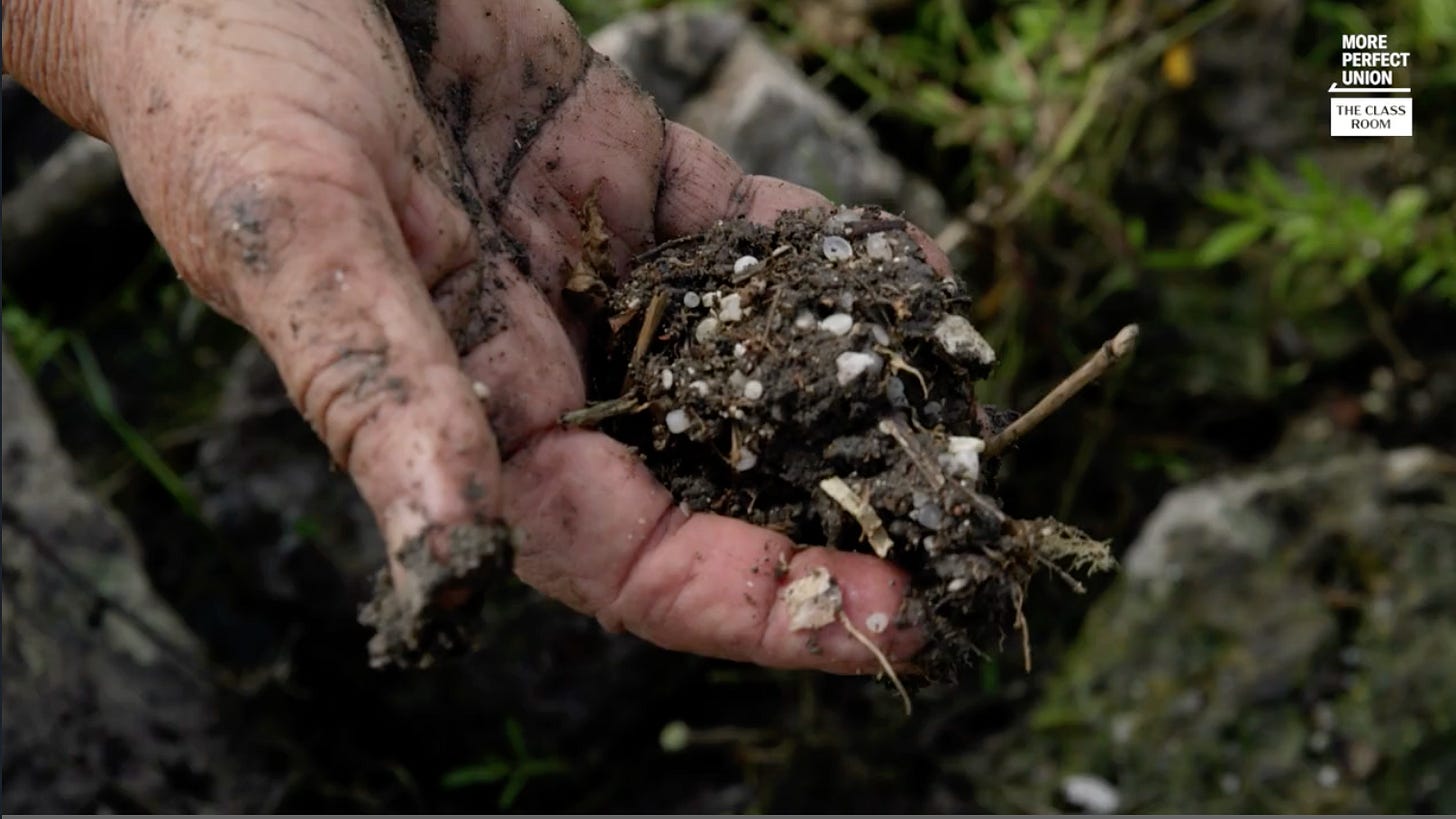The Lobbying Campaign to Keep Microplastics in the Water
We went to Texas’ Gulf Coast to get a firsthand look at how the corporate war on regulations makes us all sicker.
by Sean Morrow, More Perfect Union
Remember microbeads? The mid-2010s panic around the little plastic beads in soaps, exfoliating face washes, and whitening toothpaste that got everyone all riled up?
In 2015, the Microbead-Free Waters Act was passed to ban rinse-off cosmetics that contain intentionally added plastic microbeads. It was hardly controversial; the Senate approved it with unanimous support.
But the bill also had a surprising ally: the plastics industry. The American Chemistry Council, the main lobbying group for the chemical industry and plastics companies, submitted a statement in support of the bill saying that “given the importance of protecting the environment, we support federal legislation… to phase out plastic microbeads that are used to exfoliate or cleanse in rinse-off personal care products.”
So what gives? Why would an industry lobbying group—one whose website has a giant banner that says “Overregulating the chemistry industry jeopardizes innovation, jobs, and economic growth”—support a law that regulates the chemistry industry? Because it ignored the real problem and didn’t hurt their bottom line.
The watered-down clean water legislation
Microbeads were, for most people, our first introduction to microplastics, the tiny bits of plastic that researchers are now finding everywhere from our oceans to our brains.
But for years after that 2015 bill, the general populace thought the microplastic problem was fixed: we got rid of those pesky exfoliating beads. As researchers have since found, though, that wasn’t the case.
The microbead panic and resulting ban illustrate how the plastic and chemical industries avoid real, impactful regulation: by misdirecting public fury, blaming consumer behaviors, and supporting bogus environmental initiatives while making small concessions that fundamentally don’t change their business practices.
So it’s helpful to look at the type of regulation they fight against, such as the similarly -titled Plastic Pellet Free Waters Act. The Plastics Industry Association wrote at length about why this one must be stopped.
So, what’s the big difference between a “Microbead” and a “Plastic Pellet” that elicited such a different response?
Plastic pellets, also known as nurdles, are pre-production plastic. Plastic manufacturers produce these little pellets and then sell them to their customers — including industries that further process them for toy companies and food packagers — to eventually turn them into plastic goods. Normal consumers are never meant to see these pellets; you can’t just buy a bag of nurdles, they’re an industrial good. It’s what plastic looks like before it gets anywhere near a Wal-Mart shelf or Amazon warehouse.
And importantly, nurdles aren’t regulated as a pollutant or hazardous substance. This means plastic manufacturers and their industrial buyers have far fewer responsibilities in how the pellets are shipped and handled, and how spills are reported.
This has led to a situation where nurdles are the second largest source of microplastic pollution.
Yes, consumer products are still a problem: tire dust, clothing fibers, soda bottles, and so on. But the pre-production pellets are also a massive source of plastic in our oceans, ecosystems, and eventually our bodies.
Humanity has yet to fully grasp the effects of this unprecedented quantity of microplastics in our bodies. But the plastics industry has a long history of pushing out and proliferating products as quickly as possible, without stopping to consider the possible side effects, and this situation appears to be no different.
More Perfect Union looked into the history of plastics manufacturing, starting with the first attempt at a plastic soda bottle that was later recalled by the FDA, to get a sense of how the early plastics industry mirrors today. And then we went on the road to the Gulf Coast of Texas—where much of America’s plastic industry is located—to investigate the nurdle situation firsthand, literally digging through dirt in the looming shadow of Formosa Plastics, the subject of the biggest ever civilian lawsuit against a plastic manufacturer.
The story of plastic pellets shows how the malfeasance of corporations fighting regulation can affect us all, and how the truth of that isn’t always immediately evident. Behind this is an important lesson about the process in America: you can usually tell how effective a regulation is going to be by how hard the industry fights to curtail it.

